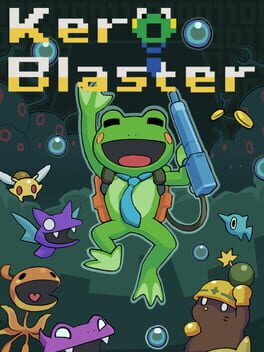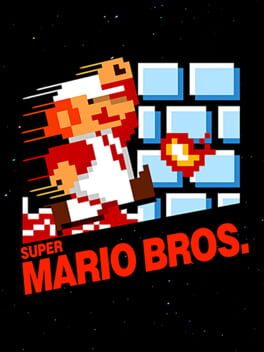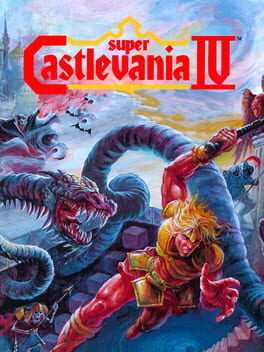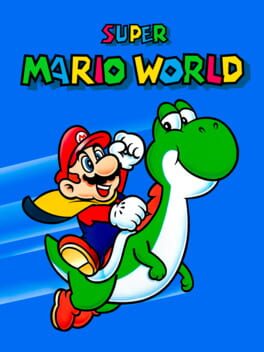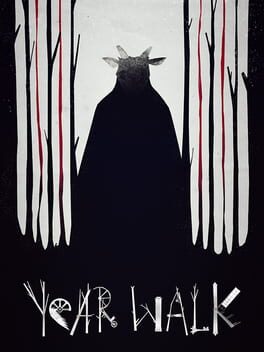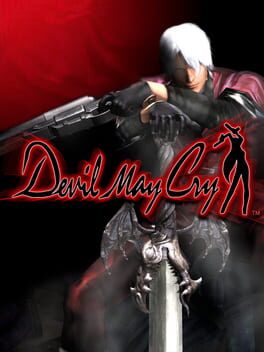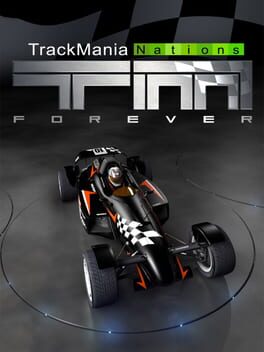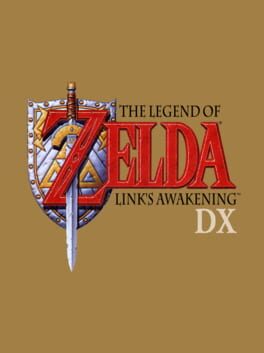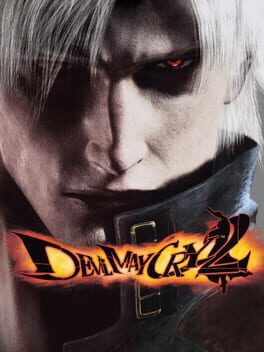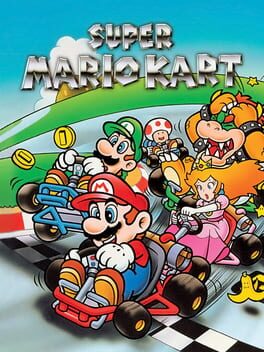antoinebeaumal
BACKER
1999
This is basically a "parenting fail" compilations
This game is a work of art, plain and simple. The atmosphere created is completely in symbiosis with the materials of its time. The vibrant and peculiar 3D of the PS1, its inability to render depth of field, the audio limitations that slow down the dialogues (it feels like being in a Rohmer film): remove one of these elements and the house of cards collapses. Remastering this title is impossible.
The game is TRULY frightening on many levels. To highlight just one element: the radio alarm. You always know there's an enemy nearby, but where? No jump scares: the game doesn't aim to scare us, but rather to terrorize us. I finished the game in 3 sessions and sometimes I was relieved to turn off the PlayStation because the atmosphere is so oppressive. My neck is still tense from this experience. Harry is never in a safe space; the player is always in danger.
The sound atmosphere and music, like any good horror film, are the scoliotic backbone of this hell. Between haunting drones and dark industrial sounds, the hearing is put to the test. Let it be known, I don't think I'll buy the vinyl to listen to it on a Sunday afternoon, unless I'm in need of an anxiety attack (aka never).
However, I must admit that I played it like a 'walking sim' by putting the game on 'easy' mode. The gameplay itself has aged relatively poorly, and the boss scenes are particularly bad. The interesting part lies in exploration and puzzle-solving. Its way of revealing the game's lore through objects and descriptions enhances immersion. I also have to admit that I am particularly a fan of the 'evolving' map system that prevents us from having to repeatedly open a locked door 15 times in a row. I look forward to playing the sequels
This game is a work of art, plain and simple. The atmosphere created is completely in symbiosis with the materials of its time. The vibrant and peculiar 3D of the PS1, its inability to render depth of field, the audio limitations that slow down the dialogues (it feels like being in a Rohmer film): remove one of these elements and the house of cards collapses. Remastering this title is impossible.
The game is TRULY frightening on many levels. To highlight just one element: the radio alarm. You always know there's an enemy nearby, but where? No jump scares: the game doesn't aim to scare us, but rather to terrorize us. I finished the game in 3 sessions and sometimes I was relieved to turn off the PlayStation because the atmosphere is so oppressive. My neck is still tense from this experience. Harry is never in a safe space; the player is always in danger.
The sound atmosphere and music, like any good horror film, are the scoliotic backbone of this hell. Between haunting drones and dark industrial sounds, the hearing is put to the test. Let it be known, I don't think I'll buy the vinyl to listen to it on a Sunday afternoon, unless I'm in need of an anxiety attack (aka never).
However, I must admit that I played it like a 'walking sim' by putting the game on 'easy' mode. The gameplay itself has aged relatively poorly, and the boss scenes are particularly bad. The interesting part lies in exploration and puzzle-solving. Its way of revealing the game's lore through objects and descriptions enhances immersion. I also have to admit that I am particularly a fan of the 'evolving' map system that prevents us from having to repeatedly open a locked door 15 times in a row. I look forward to playing the sequels
2012
« It's not about the destination, it's about the journey » blahblahblah. But can a 1-hour walking sim be qualified as a "journey"? What audacity.
It annoys me because I think I felt good into the game 15 minutes before the end. The scenery, the music, everything was there to please me, but here's the thing: it's too short. It leans more towards the arty side than the gamy one, and that's a shame.
It annoys me because I think I felt good into the game 15 minutes before the end. The scenery, the music, everything was there to please me, but here's the thing: it's too short. It leans more towards the arty side than the gamy one, and that's a shame.
2014
Successor (or not) to Cave Story, Kero Blaster goes against what one might expect from a sequel: the storytelling simplifies, transitioning from a semi-open metroidvania format to a linear game, and the lifespan is half as short. Yet, this shift isn't truly a subtraction but a refinement. Kero Blaster is much more enjoyable to play than Cave Story: the physics, the gameplay, the progression, the enemies, the weapons, etc... all come together in an organic and thoughtful manner. Instead of indulging in the grandiosity of levels and storytelling, it seems Daisuke Amaya worked on his game like a miniature.
Many somewhat pompous terms from me for a game that's essentially fun from start to finish. I'm really a fan of the difficulty progression: if you're stuck in a tough passage, you keep accumulating gold coins which grant access to extra lives and other upgrades. Even in defeat, you make progress.
A great "small" game to absolutely experience.
Many somewhat pompous terms from me for a game that's essentially fun from start to finish. I'm really a fan of the difficulty progression: if you're stuck in a tough passage, you keep accumulating gold coins which grant access to extra lives and other upgrades. Even in defeat, you make progress.
A great "small" game to absolutely experience.
Will a comment on BOTW made by a stranger on blacklogged almost 8 years after its release have an impact on the world? Obviously not. Yet, I think it is interesting to question our relationship with open-world games, of which BOTW is, for many, the standard-bearer.
To provide some context: I am playing BOTW for the first time, having spent a significant part of my life playing WOW, and for the past year, I have been trying to catch up on the major successes of recent years. I am also a player of "Souls" games and have spent several hundred hours on Elden Ring.
Why such a preamble? Because my relationship with "open-world" games is not neutral and is no longer the same in 2024; I am even exhausted by it. Spending hours pressing 'w' / up arrow and observing an "infinite" world exhausts me. I no longer have the energy to invest a hundred hours in a game collecting XXX items, doing MMO-like side quests that essentially involve going to a certain place, doing X things, and getting X rewards. The pseudo-freedom of the open world offered by developers annoys me: they place too much trust in players. However, and WOW taught me this, players are experts at ruining their gaming experience; we should not trust them.
The question now is: can BOTW be approached as a linear game, like a "classic" Zelda? Well, not really. If we consider the game not as a world to explore but as a mission to accomplish (kill Ganon) using the tools the game provides, then the game reveals a lot of weaknesses.
The game can quickly become artificially difficult, especially in the fight against Kohga in Vah’Naboris. Every mistake is instant death.
All resources (food, weapons, and shields) become a hindrance to progress. You end up having to farm them. The weapon-breaking system completely discouraged me from exploring; I wanted to save my resources as much as possible.
The open-world aspect makes almost everything "skippable": it is possible to finish the game by killing practically no enemies.
Once the power of Regali is obtained, exploration as such comes to an end in my opinion. It is possible to completely skip Hyrule Castle at the end of the game. What I expected to be a "mega-shrine +++" turned out to be a courtesy visit to Ganon.
Obviously, I am exaggerating a bit, and it is undeniable that the game is simply beautiful in many aspects, especially graphically and musically.
Gasp… I think I am getting old and expecting something else from video games than being 'infinite interactive toys.' Perhaps I am expecting games to be controlled by developers and not left to players. Unfortunately, I have the impression that Tears of the Kingdom continues in this direction by adding 'Minecraft'-like crafting.
FR :
Est-ce qu’un commentaire sur BOTW fait par un inconnu sur blacklogged presque 8 ans après sa sortie va-t-il avoir un impact sur le monde ? Évidemment que non. Pourtant, je pense qu’il est intéressant d’interroger notre rapport aux jeux open-world dont BOTW est, pour beaucoup, l’étendard d’un standard.
Pour donner quelques éléments de contextes : je joue pour la première fois à BOTW, j’ai passé une majeure partie de ma vie à jouer à WOW et cela fait maintenant 1 an que je tente de rattraper mon retard sur les grands succès de ces dernières années. Je suis aussi un joueur de « Souls » et j’ai passé plusieurs centaines d’heures sur Elden Ring.
Pourquoi un tel préambule ? Parce mon rapport aux jeux « open-world » n’est pas neutre et n’est plus le même en 2024 : j’en suis même épuisé. Passer des heures à presser « w » / flèche directionnel en haut et observer un monde « infini » m’épuise. Je n’ai plus la force d’investir une centaine d’heure dans un jeu à collecter XXX items, faire des sides-quests « à la MMO » qui consistent essentiellement à aller à tel endroit faire X choses et obtenir X récompenses. La pseudo liberté de l’open world que me propose les développeurs m’exaspèrent : ils placent trop de confiance dans les joueurs. Hors, et WOW me l’a appris, les joueurs sont les experts pour ruiner leur expérience de jeu, on ne doit pas leur faire confiance.
La question maintenant est : est-ce que BOTW peut-il être abordé comme un jeu linéaire, comme un zelda « classique » ? Et bien, pas vraiment. Si on considère le jeu non pas comme un monde à explorer, mais une mission à accomplir (tuer Ganon) en utilisant les outils que le jeu nous propose, alors le jeu révèle un grand nombre de faiblesses.
1. Le jeu peut rapidement devenir artificiellement difficile, notamment sur la fight contre Kohga dans Vah’Naboris. Chaque erreur est une mort instantanée.
2. Toutes les ressources (nourriture, arme et bouclier) deviennent un frein à la progression. On se retrouve obliger d’aller les farm. Ce système d’armes qui se détruit m’a totalement découragé à aller explorer, je voulais ainsi économiser le plus possible mes ressources.
3. L’aspect open-world rend à peu près tout « skippable » : il est possible de finir le jeu en ne tuant pratiquement aucun ennemi.
4. Une fois le pouvoir de Regali obtenu, l’exploration en tant que telle prend fin à mon sens. Il est possible de totalement passer le château d’Hyrule à la fin du jeu. La où je m’attendais à un « mega-shrine +++ » s’est révélé être une visite de courtoisie à Ganon.
Évidemment, je force un peu le trait, et il est indéniable que le jeu est tout simplement magnifique sur beaucoup d’aspects, notamment graphiquement et musicalement.
Gasp… Je pense que je deviens vieux et que j’attends autre chose des jeux vidéo que d’être des « jouets interactifs infinis ». J’attends peut-être que les jeux soient contrôlés par les développeurs et non pas laissés aux joueurs.
J’ai malheureusement l’impression que Tears of the Kingdom continue dans cette voie en y ajoutant des craft « à la Minecraft ».
To provide some context: I am playing BOTW for the first time, having spent a significant part of my life playing WOW, and for the past year, I have been trying to catch up on the major successes of recent years. I am also a player of "Souls" games and have spent several hundred hours on Elden Ring.
Why such a preamble? Because my relationship with "open-world" games is not neutral and is no longer the same in 2024; I am even exhausted by it. Spending hours pressing 'w' / up arrow and observing an "infinite" world exhausts me. I no longer have the energy to invest a hundred hours in a game collecting XXX items, doing MMO-like side quests that essentially involve going to a certain place, doing X things, and getting X rewards. The pseudo-freedom of the open world offered by developers annoys me: they place too much trust in players. However, and WOW taught me this, players are experts at ruining their gaming experience; we should not trust them.
The question now is: can BOTW be approached as a linear game, like a "classic" Zelda? Well, not really. If we consider the game not as a world to explore but as a mission to accomplish (kill Ganon) using the tools the game provides, then the game reveals a lot of weaknesses.
The game can quickly become artificially difficult, especially in the fight against Kohga in Vah’Naboris. Every mistake is instant death.
All resources (food, weapons, and shields) become a hindrance to progress. You end up having to farm them. The weapon-breaking system completely discouraged me from exploring; I wanted to save my resources as much as possible.
The open-world aspect makes almost everything "skippable": it is possible to finish the game by killing practically no enemies.
Once the power of Regali is obtained, exploration as such comes to an end in my opinion. It is possible to completely skip Hyrule Castle at the end of the game. What I expected to be a "mega-shrine +++" turned out to be a courtesy visit to Ganon.
Obviously, I am exaggerating a bit, and it is undeniable that the game is simply beautiful in many aspects, especially graphically and musically.
Gasp… I think I am getting old and expecting something else from video games than being 'infinite interactive toys.' Perhaps I am expecting games to be controlled by developers and not left to players. Unfortunately, I have the impression that Tears of the Kingdom continues in this direction by adding 'Minecraft'-like crafting.
FR :
Est-ce qu’un commentaire sur BOTW fait par un inconnu sur blacklogged presque 8 ans après sa sortie va-t-il avoir un impact sur le monde ? Évidemment que non. Pourtant, je pense qu’il est intéressant d’interroger notre rapport aux jeux open-world dont BOTW est, pour beaucoup, l’étendard d’un standard.
Pour donner quelques éléments de contextes : je joue pour la première fois à BOTW, j’ai passé une majeure partie de ma vie à jouer à WOW et cela fait maintenant 1 an que je tente de rattraper mon retard sur les grands succès de ces dernières années. Je suis aussi un joueur de « Souls » et j’ai passé plusieurs centaines d’heures sur Elden Ring.
Pourquoi un tel préambule ? Parce mon rapport aux jeux « open-world » n’est pas neutre et n’est plus le même en 2024 : j’en suis même épuisé. Passer des heures à presser « w » / flèche directionnel en haut et observer un monde « infini » m’épuise. Je n’ai plus la force d’investir une centaine d’heure dans un jeu à collecter XXX items, faire des sides-quests « à la MMO » qui consistent essentiellement à aller à tel endroit faire X choses et obtenir X récompenses. La pseudo liberté de l’open world que me propose les développeurs m’exaspèrent : ils placent trop de confiance dans les joueurs. Hors, et WOW me l’a appris, les joueurs sont les experts pour ruiner leur expérience de jeu, on ne doit pas leur faire confiance.
La question maintenant est : est-ce que BOTW peut-il être abordé comme un jeu linéaire, comme un zelda « classique » ? Et bien, pas vraiment. Si on considère le jeu non pas comme un monde à explorer, mais une mission à accomplir (tuer Ganon) en utilisant les outils que le jeu nous propose, alors le jeu révèle un grand nombre de faiblesses.
1. Le jeu peut rapidement devenir artificiellement difficile, notamment sur la fight contre Kohga dans Vah’Naboris. Chaque erreur est une mort instantanée.
2. Toutes les ressources (nourriture, arme et bouclier) deviennent un frein à la progression. On se retrouve obliger d’aller les farm. Ce système d’armes qui se détruit m’a totalement découragé à aller explorer, je voulais ainsi économiser le plus possible mes ressources.
3. L’aspect open-world rend à peu près tout « skippable » : il est possible de finir le jeu en ne tuant pratiquement aucun ennemi.
4. Une fois le pouvoir de Regali obtenu, l’exploration en tant que telle prend fin à mon sens. Il est possible de totalement passer le château d’Hyrule à la fin du jeu. La où je m’attendais à un « mega-shrine +++ » s’est révélé être une visite de courtoisie à Ganon.
Évidemment, je force un peu le trait, et il est indéniable que le jeu est tout simplement magnifique sur beaucoup d’aspects, notamment graphiquement et musicalement.
Gasp… Je pense que je deviens vieux et que j’attends autre chose des jeux vidéo que d’être des « jouets interactifs infinis ». J’attends peut-être que les jeux soient contrôlés par les développeurs et non pas laissés aux joueurs.
J’ai malheureusement l’impression que Tears of the Kingdom continue dans cette voie en y ajoutant des craft « à la Minecraft ».
1985
I played this game a lot as a child. I had access to it because it was on Super Mario Advance on the GBA. I found it particularly short, and I remember often challenging myself to finish it as quickly as possible. A good way to kill time on a long car journey.
I also remember that levels 4-1 and 6-1 (the one where a character on a cloud sent us spiked shells) were particularly fun and almost required us to speedrun.
Playing the game again, I found it to be a little "empty", and not really making the best use of the challenges it provides. The difficulty is poorly managed over the long term: it's either too simple or just irritating (hello hammer-throwing turtles, your patern is harder to read than Elden Ring's Malenia). The 7-4 and 8-4 puzzle-solving aspect is also annoying.
Although the graphics are very "early nes", I think Nintendo has done a particularly good job with its choice of colors: they're all warm and well-matched, and a real treat for the eyes.
In short, mythical but skipable.
I also remember that levels 4-1 and 6-1 (the one where a character on a cloud sent us spiked shells) were particularly fun and almost required us to speedrun.
Playing the game again, I found it to be a little "empty", and not really making the best use of the challenges it provides. The difficulty is poorly managed over the long term: it's either too simple or just irritating (hello hammer-throwing turtles, your patern is harder to read than Elden Ring's Malenia). The 7-4 and 8-4 puzzle-solving aspect is also annoying.
Although the graphics are very "early nes", I think Nintendo has done a particularly good job with its choice of colors: they're all warm and well-matched, and a real treat for the eyes.
In short, mythical but skipable.
1991
Attention, this is more of a meta-commentary on the importance of positive and passionate criticism than a review.
This is the 4th time I've completed Castlevania IV, a game I discovered in 2011 thanks to the Angry Video Game Nerd's video. Even though criticism from him is now almost non-existent (it seems he only reads from a script and no longer writes his own texts), James was really important to me between 2007 and 2012 (roughly). Each video was a small event and the discovery of a terrible game. Yet in 2011, he made an exception to the rule and spoke passionately about a franchise he loved. Instead of bashing a game, he talked passionately about a game he particularly adored. I liked his style of criticism: a mix of his personal history with the game and a more objective analysis.
In 2024, I have mixed feelings about AVGN (and even being "a fan"), but I still appreciate his series on Castlevania because it tells the story of a gamer's passion rather than capitalizing on "hate content." In my opinion, talking about the content of something you really love is much harder than harsh criticism. I think this creator unfortunately surrounded himself with the wrong people who took advantage of his success. Watching an AVGN video now is painful: it feels like watching a caricature of a caricature.
Anyway, I immediately tried playing Castlevania IV, first on an emulator, then by buying a physical version. I really became a fan of this game, especially because of its sublime dark fantasy graphical style and its absolutely incredible music (there's even a very improbable jazz solo). Generally speaking, it's the unique atmosphere created that stands out, even though the game relies on well-known themes (the castle, bats, mummies, Dracula, etc.). The boss fights are memorable and the difficulty is very well balanced (though it's not exactly easy). So okay, the controls are a bit stiff and there's no save system, but that really doesn't matter to me. It's also one of the last classic platformer Castlevania games. I can only recommend it.
This is the 4th time I've completed Castlevania IV, a game I discovered in 2011 thanks to the Angry Video Game Nerd's video. Even though criticism from him is now almost non-existent (it seems he only reads from a script and no longer writes his own texts), James was really important to me between 2007 and 2012 (roughly). Each video was a small event and the discovery of a terrible game. Yet in 2011, he made an exception to the rule and spoke passionately about a franchise he loved. Instead of bashing a game, he talked passionately about a game he particularly adored. I liked his style of criticism: a mix of his personal history with the game and a more objective analysis.
In 2024, I have mixed feelings about AVGN (and even being "a fan"), but I still appreciate his series on Castlevania because it tells the story of a gamer's passion rather than capitalizing on "hate content." In my opinion, talking about the content of something you really love is much harder than harsh criticism. I think this creator unfortunately surrounded himself with the wrong people who took advantage of his success. Watching an AVGN video now is painful: it feels like watching a caricature of a caricature.
Anyway, I immediately tried playing Castlevania IV, first on an emulator, then by buying a physical version. I really became a fan of this game, especially because of its sublime dark fantasy graphical style and its absolutely incredible music (there's even a very improbable jazz solo). Generally speaking, it's the unique atmosphere created that stands out, even though the game relies on well-known themes (the castle, bats, mummies, Dracula, etc.). The boss fights are memorable and the difficulty is very well balanced (though it's not exactly easy). So okay, the controls are a bit stiff and there's no save system, but that really doesn't matter to me. It's also one of the last classic platformer Castlevania games. I can only recommend it.
1990
When I was a child, there was a supermarket where you could find one of those SNES stands (exactly like this one https://imgur.com/a/IhkmWSh) that only played Super Mario World. Too shy, I never dared to play because there was always a crowd gathering around. Taking the shiny controller (it was shiny because it was greasy from the sebum of dozens of children) meant being watched by an impatient crowd. I didn't want to embarrass myself.
It's a strange coincidence that I never played SMW before that day. And what a mistake! The level design, the graphics, the music: everything is incredible and still interesting today. Maybe Mario 3 on NES (another untouched classic) had already introduced this, but I find it interesting to add 'dead ends' to some levels. This breaks the linearity of the game, which can be too easily criticized in 2D games.
I don't have much to add to the thousands of existing reviews except to insist that the game's inventiveness seems to crescendo: the further you progress, the more interesting it becomes. No dull moments: even the 'aquatic' moments and the 'oh, now the platforms are slippery' moments that seem to be obligatory passages in platformers are interesting and engaging here. Even if it's a criticism that can be made of most Mario games: the boss fights are sometimes too short, I would have loved bosses like the final showdown with Bowser, which is particularly epic.
Definitely a game I will replay in the future, and perhaps with a more 'completionist' approach. Finishing the game with only 50% progress has two effects on me: discouragement or encouragement. SMW falls into the latter category.
It's a strange coincidence that I never played SMW before that day. And what a mistake! The level design, the graphics, the music: everything is incredible and still interesting today. Maybe Mario 3 on NES (another untouched classic) had already introduced this, but I find it interesting to add 'dead ends' to some levels. This breaks the linearity of the game, which can be too easily criticized in 2D games.
I don't have much to add to the thousands of existing reviews except to insist that the game's inventiveness seems to crescendo: the further you progress, the more interesting it becomes. No dull moments: even the 'aquatic' moments and the 'oh, now the platforms are slippery' moments that seem to be obligatory passages in platformers are interesting and engaging here. Even if it's a criticism that can be made of most Mario games: the boss fights are sometimes too short, I would have loved bosses like the final showdown with Bowser, which is particularly epic.
Definitely a game I will replay in the future, and perhaps with a more 'completionist' approach. Finishing the game with only 50% progress has two effects on me: discouragement or encouragement. SMW falls into the latter category.
2013
There is a German word that has always intrigued me: "Waldeinsamkeit," which roughly translates to "the feeling of solitude experienced in a forest." Even though Year Walk is Swedish and not German, I think this concept suits it perfectly. Unfortunately, being more of a mountain person at heart, I struggled to appreciate getting lost in this charming setting. The iPad version (to my knowledge?) lacks a map system, making the game more cumbersome.
Beyond that, the game falls into that precious category for me, which is "folkloric horror," alongside Mundaun, another game dear to my heart. The puzzles here are really well-crafted and balanced, although I found the final part slightly less interesting. It's worth noting that the game has a "good/bad ending" system that I find a bit ridiculous (was it really necessary, honestly?).
Lots of charm but underexploited.
Beyond that, the game falls into that precious category for me, which is "folkloric horror," alongside Mundaun, another game dear to my heart. The puzzles here are really well-crafted and balanced, although I found the final part slightly less interesting. It's worth noting that the game has a "good/bad ending" system that I find a bit ridiculous (was it really necessary, honestly?).
Lots of charm but underexploited.
2001
I am not really a "New Game Plus guy." Usually, I finish a game (rarely at 100%) and move on to the next one. I absolutely do not disparage this way of playing; quite the contrary, I have played and replayed the same games for years on end (like the 10,000 hours spent on vanilla WoW, oops). Over time, I have increasingly wanted to explore new games from different eras and styles, not necessarily staying stuck in a comfort zone or the same genre. With Devil May Cry, I discovered another approach, another perspective on playing a game: some games simply become better in New Game Plus.
I still have my physical PS2 copy that I bought almost on the day it was released, thanks to the rave reviews of the time. Without the memory cards from back then, I can’t say how far I got, but I doubt I got past the first boss. If I’m not mistaken, GTA 3 was already announced, and I then spent a good part of the end of 2001 traversing the streets of Liberty City.
The game is simply incredible. Its gothic and cool style is unique and holds up from beginning to end with its very "cheesy" side. It's primarily its combat gameplay that is very addictive: it's both easy to get into but difficult to master.
I never would have thought I would like this very arcade-oriented type of game. As soon as I finished (with difficulty) the game in normal mode, I immediately started again in hard mode, something I almost never do.
Having tried to replay it with my PS2 copy, I highly recommend the HD collection, which fixes almost all the framerate issues.
I still have my physical PS2 copy that I bought almost on the day it was released, thanks to the rave reviews of the time. Without the memory cards from back then, I can’t say how far I got, but I doubt I got past the first boss. If I’m not mistaken, GTA 3 was already announced, and I then spent a good part of the end of 2001 traversing the streets of Liberty City.
The game is simply incredible. Its gothic and cool style is unique and holds up from beginning to end with its very "cheesy" side. It's primarily its combat gameplay that is very addictive: it's both easy to get into but difficult to master.
I never would have thought I would like this very arcade-oriented type of game. As soon as I finished (with difficulty) the game in normal mode, I immediately started again in hard mode, something I almost never do.
Having tried to replay it with my PS2 copy, I highly recommend the HD collection, which fixes almost all the framerate issues.
Usually, I am not inclined towards superstitions and beliefs, but at the end of Ocarina of Time, Princess Zelda asked me to return to my time. Whether it's prophecy or sheer coincidence, we must admit that the princess’s exit is quite ironic when you’ve just spent several dozen hours on a game released over 25 years ago. What did she mean by returning to my time? Maybe I should simply enjoy current games? Like Baldur’s Gate 3 or Tears of the Kingdom? Stop stubbornly playing old games? I remain without an answer.
Anyway, we should normally keep quiet about never having played Ocarina of Time. It's the classic of classics. The "Citizen Kane" or "In Search of Lost Time" of gaming. If you skip this game, your gamer card gets revoked. Yet, like the aforementioned classics, I admit there's a strangely off-putting aspect to diving into the "genre's canons." As a critic, you find yourself in an uncomfortable position. Should you praise the game? Everyone has already done that (and better than you). Should you, on the contrary, bash it and make "hate content"? No, thank you. I have no desire to do either. I can only share my experience, which is the only "unique" thing that could be said about this game.
Ocarina of Time is not "just" the transition from 2D to 3D for a series; it's the "vanilla" experience of the 3D adventure game that remains the standard and, even today, an enjoyable experience. I find it crazy to think that this game is both the "universal tutorial" of 3D gaming while also being at the forefront of revolutionary mechanics: targeting, streamlined inventory management (compared to CRPGs of the time), dungeon level design, etc. I was impressed by how playable a 3D game controlled with a single stick remains without too many camera problems.
And yet, narratively, the game stays in a total classicism that I find, in this case, too "vanilla." I have trouble integrating into this world that lacks bizarreness. Everything is a bit too smooth for my taste. If the story didn't captivate me, it's the overall atmosphere of the dungeons that particularly stood out: the music, the enemies, the lighting effects, and the camera work, all are impressively mastered. The "open world" is very limited, and I admit I rushed through the dungeons without paying much attention to the side quests (I didn’t even get Epona). This didn't spoil my enjoyment.
Playing classics also raises the question of the platform on which to play them. After completing a third of the game on 3DS, I borrowed an N64 with an original cartridge. After spending a lot of time trying to get a decent image on my OLED screen, I eventually followed the path of reason by listening to @Katsono and @Armakeen and playing the version made by the Ship of Harkinian team with 4K textures added. I recommend anyone wanting to embark on this adventure to do the same: the game is beautiful, smooth, and you can assign the boots to the "C" button (which makes the Water Temple a bit less tedious). Hats off.
I look forward to diving into Majora’s Mask soon, probably in its "decompiled" version.
Anyway, we should normally keep quiet about never having played Ocarina of Time. It's the classic of classics. The "Citizen Kane" or "In Search of Lost Time" of gaming. If you skip this game, your gamer card gets revoked. Yet, like the aforementioned classics, I admit there's a strangely off-putting aspect to diving into the "genre's canons." As a critic, you find yourself in an uncomfortable position. Should you praise the game? Everyone has already done that (and better than you). Should you, on the contrary, bash it and make "hate content"? No, thank you. I have no desire to do either. I can only share my experience, which is the only "unique" thing that could be said about this game.
Ocarina of Time is not "just" the transition from 2D to 3D for a series; it's the "vanilla" experience of the 3D adventure game that remains the standard and, even today, an enjoyable experience. I find it crazy to think that this game is both the "universal tutorial" of 3D gaming while also being at the forefront of revolutionary mechanics: targeting, streamlined inventory management (compared to CRPGs of the time), dungeon level design, etc. I was impressed by how playable a 3D game controlled with a single stick remains without too many camera problems.
And yet, narratively, the game stays in a total classicism that I find, in this case, too "vanilla." I have trouble integrating into this world that lacks bizarreness. Everything is a bit too smooth for my taste. If the story didn't captivate me, it's the overall atmosphere of the dungeons that particularly stood out: the music, the enemies, the lighting effects, and the camera work, all are impressively mastered. The "open world" is very limited, and I admit I rushed through the dungeons without paying much attention to the side quests (I didn’t even get Epona). This didn't spoil my enjoyment.
Playing classics also raises the question of the platform on which to play them. After completing a third of the game on 3DS, I borrowed an N64 with an original cartridge. After spending a lot of time trying to get a decent image on my OLED screen, I eventually followed the path of reason by listening to @Katsono and @Armakeen and playing the version made by the Ship of Harkinian team with 4K textures added. I recommend anyone wanting to embark on this adventure to do the same: the game is beautiful, smooth, and you can assign the boots to the "C" button (which makes the Water Temple a bit less tedious). Hats off.
I look forward to diving into Majora’s Mask soon, probably in its "decompiled" version.
I've decided that from now on, I'm going to hook the reader with a clickbait title. Here's my title:
if you enjoyed Celeste, you might loveTrackmania Nations Forever.
Disclaimers: I'm not a fan of cars in real life. 2. I'm not a fan (at first glance) of simulation games. Luckily, Trackmania Nations Forever isn't a game for car enthusiasts or simulation fans. I'd go even further: it's not really a traditional racing game. You don't navigate the 65 tracks to beat opponents but to beat a time. The whole appeal of the game lies in this singular goal: a certain idea of perfectionism.
Everything surrounding this goal is far from perfect: TMNF's graphics are generally quite generic despite some nice lighting effects. The music is a kind of dull lounge house. There's no damage physics, all cars have the same characteristics. All tracks seem to have been made with the same level editor.
What makes TMNF a great game is the driving mechanics. The simplistic controls (accelerate, turn left, right, and sometimes brake) demand great precision. It's all about perfect timing. Revelation for me: I realize that racing games are mostly 3D games but with 2D game controls. Like a platformer, inputs could be articulated on a simple X-axis (left and right) and Y-axis (accelerate, brake). I'd struggle to say why this particular game has such exceptional control, but it's a feeling I've never had in any racing game before. It's both immediately easy to grasp but exponentially difficult to master.
You do need a certain mindset to get into this game: having the 'grind' culture. Being a bit obstinate to restart the same course dozens or even hundreds of times to get the medal you want (for me, I stopped at the gold medal). A bit like Celeste, we work on micro-segments (the average duration of a race is about 45 sec.) that we must master. Another totally unique element of this game is the ability to 'brake in the air' and decide on your trajectory (like a 2D platformer). It's physically totally improbable but very interesting in terms of gameplay.
There's obviously a highly competitive aspect and a ranking system on two scales: a local one (a bronze to Nadeo medal system (higher than Gold)) and a quite laughable global leaderboard system. It's always fun to be proud of one of these courses before realizing that you're just entering the top 100,000 worldwide. The somewhat comical patriotic or regional aspect, I'm quite proud to be in the top 100 of a part of Switzerland (which is not already a big country).
Anyway, play it, it's free
if you enjoyed Celeste, you might loveTrackmania Nations Forever.
Disclaimers: I'm not a fan of cars in real life. 2. I'm not a fan (at first glance) of simulation games. Luckily, Trackmania Nations Forever isn't a game for car enthusiasts or simulation fans. I'd go even further: it's not really a traditional racing game. You don't navigate the 65 tracks to beat opponents but to beat a time. The whole appeal of the game lies in this singular goal: a certain idea of perfectionism.
Everything surrounding this goal is far from perfect: TMNF's graphics are generally quite generic despite some nice lighting effects. The music is a kind of dull lounge house. There's no damage physics, all cars have the same characteristics. All tracks seem to have been made with the same level editor.
What makes TMNF a great game is the driving mechanics. The simplistic controls (accelerate, turn left, right, and sometimes brake) demand great precision. It's all about perfect timing. Revelation for me: I realize that racing games are mostly 3D games but with 2D game controls. Like a platformer, inputs could be articulated on a simple X-axis (left and right) and Y-axis (accelerate, brake). I'd struggle to say why this particular game has such exceptional control, but it's a feeling I've never had in any racing game before. It's both immediately easy to grasp but exponentially difficult to master.
You do need a certain mindset to get into this game: having the 'grind' culture. Being a bit obstinate to restart the same course dozens or even hundreds of times to get the medal you want (for me, I stopped at the gold medal). A bit like Celeste, we work on micro-segments (the average duration of a race is about 45 sec.) that we must master. Another totally unique element of this game is the ability to 'brake in the air' and decide on your trajectory (like a 2D platformer). It's physically totally improbable but very interesting in terms of gameplay.
There's obviously a highly competitive aspect and a ranking system on two scales: a local one (a bronze to Nadeo medal system (higher than Gold)) and a quite laughable global leaderboard system. It's always fun to be proud of one of these courses before realizing that you're just entering the top 100,000 worldwide. The somewhat comical patriotic or regional aspect, I'm quite proud to be in the top 100 of a part of Switzerland (which is not already a big country).
Anyway, play it, it's free
This review contains spoilers
A Zelda game inspired by Twin Peaks that has nothing to do with the other Zeldas: if only spin-offs of well-known series could have the quality of this game.
Originally conceived as an adaptation of A Link to the Past, the game became something entirely different. The transition from SNES to GameBoy at the time often meant a degradation of the original product due to the technical limitations of the device. I had been traumatized by the GB version of Donkey Kong Country. Here, with Zelda, it's completely different; we're not faced with a 'lite' version. Even though the world of Link's Awakening is smaller in size than A Link to the Past, I felt more like this game added elements rather than removing them. We have more cutscenes, memorable characters, and more music (which is incredible, by the way).
Certainly, we return to a linear gameplay pattern, but the game's progression is exceptional. It feels like each 'square' of the map is used optimally. The size of the world, in my opinion, is ideal: neither too big nor too small. With each new item, we enjoy revisiting this world to discover new secrets, whereas A Link to the Past with its two parallel worlds seemed too large and confusing to me. Is Link's Awakening easier? If compared to its predecessors, the answer is clearly yes.
Spoilers: After discovering that the island is just a dream, I was struck by the fact that we view the game in a more melancholic light. Perhaps it's a metaphor for the player, but finishing the game means the disappearance of Koholint. The ambivalence in which we find ourselves is truly unique. After reading the mural, we enter the sixth dungeon and this music plays on loop, which I find particularly sad: https://www.youtube.com/watch?v=4X6UqQDmjBk
It's the first Zelda game that I played and finished (thanks to a magazine) that I absolutely loved. Almost 25 years later, the experience is almost the same. I played it with a smile.
Originally conceived as an adaptation of A Link to the Past, the game became something entirely different. The transition from SNES to GameBoy at the time often meant a degradation of the original product due to the technical limitations of the device. I had been traumatized by the GB version of Donkey Kong Country. Here, with Zelda, it's completely different; we're not faced with a 'lite' version. Even though the world of Link's Awakening is smaller in size than A Link to the Past, I felt more like this game added elements rather than removing them. We have more cutscenes, memorable characters, and more music (which is incredible, by the way).
Certainly, we return to a linear gameplay pattern, but the game's progression is exceptional. It feels like each 'square' of the map is used optimally. The size of the world, in my opinion, is ideal: neither too big nor too small. With each new item, we enjoy revisiting this world to discover new secrets, whereas A Link to the Past with its two parallel worlds seemed too large and confusing to me. Is Link's Awakening easier? If compared to its predecessors, the answer is clearly yes.
Spoilers: After discovering that the island is just a dream, I was struck by the fact that we view the game in a more melancholic light. Perhaps it's a metaphor for the player, but finishing the game means the disappearance of Koholint. The ambivalence in which we find ourselves is truly unique. After reading the mural, we enter the sixth dungeon and this music plays on loop, which I find particularly sad: https://www.youtube.com/watch?v=4X6UqQDmjBk
It's the first Zelda game that I played and finished (thanks to a magazine) that I absolutely loved. Almost 25 years later, the experience is almost the same. I played it with a smile.
2003
1992
Unless you're an aliasing fetishist or enjoy being humiliated by a blatantly unfair AI, there's no point in revisiting this first Mario Kart. Even though I have fond memories of it from my childhood, I must admit it hasn't aged well.
The game's difficulty is incredibly poorly balanced. The 50 and 100cc races are nearly impossible to lose because they're so simple. However, once you reach the special cup and the 150cc category, the game turns into SM domination and promptly punishes you for even the slightest micro-error. Honestly, 100% this game is truly one of the most punishing challenges I've ever subjected myself to :(
The game's difficulty is incredibly poorly balanced. The 50 and 100cc races are nearly impossible to lose because they're so simple. However, once you reach the special cup and the 150cc category, the game turns into SM domination and promptly punishes you for even the slightest micro-error. Honestly, 100% this game is truly one of the most punishing challenges I've ever subjected myself to :(
I have a lot of bias towards this game: I love it and I hate it. By the early 2000s, it was already established that the Zeldas were masterpieces, notably thanks to Ocarina of Time and Majora’s Mask. Not having a Nintendo 64, I didn’t have the chance to play them on their release day. The only Zelda I had played was Link’s Awakening on GameBoy Color in 1998, which I particularly loved. In 1999, I managed to find a copy of Link to the Past at a garage sale for a relatively high price (I believe it was 40€). Unfortunately, the game was in German, but I still tried to play it. I never managed to find the third medallion and remained stuck for a long time, excessively frustrated because I loved everything about the game. But the language barrier made the experience difficult. It was also impossible for me to use the manual (I only bought the cartridge), and I couldn't get my hands on a guide (this was in 1999, I remind you, I didn't have internet at home yet, and printed guides were unavailable at that time).
I think we forget that this kind of game can be particularly opaque and cryptic, even though LTTP is more accessible than the first installment of the saga. The impatient player then has two options to bypass the secrets of this game: the complete guide (and spoil the experience) or the hint for a boost. In this sense, the integration of the NPC who guides you for 30 rupees is a stroke of genius that I would have loved to discover as a child instead of raging on my own, cutting all the bushes in the game (I could have also learned German, what a noob)... Are there still players who will have a similar experience to mine nowadays? I posit here as a hypothesis that the lost player who does not have access to any form of "guidance" has practically disappeared.
Many critics rightly emphasized that LTTP has an absolutely gigantic semi-open world with the particular twist of the change thanks to the mirror. This part is especially remembered because it foreshadows the games to come. But when you really play this game, you forget that LTTP has a half of games close to the dungeon crawling genre, a genre immensely more popular at that time. Japan in particular was marked by the legacy of Wizardry. It's really fascinating to imagine that LTTP (and perhaps a major part of the Zelda series? I'm not an expert, so I'll remain cautious) was at the crossroads between open-world adventure and dungeon crawling. It raises the theoretical question: if the critics hadn't praised the open world of Zelda so much, would the series have become a series of dungeon games? In a parallel Bizarro world, would BOTW have looked like a Lunacid-type game and would Lunacid have been a game that pays homage to the open world? I'm totally digressing.
The game is truly a revolutionary masterpiece. The evolution between LTTP and The Legend of Zelda released 6 years earlier is staggering, even from a technical point of view. Although we live in completely different eras where graphics evolved extremely rapidly, it's amusing to think about this in perspective of a comparison between BOTW and TOTK, which also have almost 6 years apart and are, for all intents and purposes, identical.
Yet despite all the "objective" and qualitative data of this game, well ... I got a little bored in the middle of the game. The alternation between open-world and dungeons becomes a bit repetitive, but fortunately the end is amazing (since the ice dungeon, I would say).
A little annoyance on my part: trying to use online guides only as a last resort (for example, if I'm stuck for more than an hour), I managed relatively well until I got to Trinexx. Impossible for me to figure out how to defeat him on my own. Searching online, I discover that I need the "ice wand." I go to get it and I realize that I can never kill the dragon heads, even with 3 magic bars. I finally realize that my sword is only level 2. I realize that I completely missed the upgrades. Overall, it annoyed me because none of these items are necessary before. This kind of "dead end" is really annoying and discouraging. Without recourse to a guide, I would probably have given up at this point.
Another important point, in terms of narration, LTTP is in line with its predecessors: few dialogues, few memorable secondary characters. The game is more focused on its gameplay and level design while remaining relatively quiet. You either like it or you don't. Even though I struggle with games that are too talkative, I think I might have liked to be more involved in the world of Hyrule. LTTP remains very "gamey": I finished dungeon 5, let's go to dungeon 6. We generally don't care about the story, which is not a bad thing in itself. Add to that the fact that the game is generally very serious. It seems to me that the subsequent games often have more "dorky" moments.
Anyway, I'm glad to have turned this frustrating page of my existence.
I think we forget that this kind of game can be particularly opaque and cryptic, even though LTTP is more accessible than the first installment of the saga. The impatient player then has two options to bypass the secrets of this game: the complete guide (and spoil the experience) or the hint for a boost. In this sense, the integration of the NPC who guides you for 30 rupees is a stroke of genius that I would have loved to discover as a child instead of raging on my own, cutting all the bushes in the game (I could have also learned German, what a noob)... Are there still players who will have a similar experience to mine nowadays? I posit here as a hypothesis that the lost player who does not have access to any form of "guidance" has practically disappeared.
Many critics rightly emphasized that LTTP has an absolutely gigantic semi-open world with the particular twist of the change thanks to the mirror. This part is especially remembered because it foreshadows the games to come. But when you really play this game, you forget that LTTP has a half of games close to the dungeon crawling genre, a genre immensely more popular at that time. Japan in particular was marked by the legacy of Wizardry. It's really fascinating to imagine that LTTP (and perhaps a major part of the Zelda series? I'm not an expert, so I'll remain cautious) was at the crossroads between open-world adventure and dungeon crawling. It raises the theoretical question: if the critics hadn't praised the open world of Zelda so much, would the series have become a series of dungeon games? In a parallel Bizarro world, would BOTW have looked like a Lunacid-type game and would Lunacid have been a game that pays homage to the open world? I'm totally digressing.
The game is truly a revolutionary masterpiece. The evolution between LTTP and The Legend of Zelda released 6 years earlier is staggering, even from a technical point of view. Although we live in completely different eras where graphics evolved extremely rapidly, it's amusing to think about this in perspective of a comparison between BOTW and TOTK, which also have almost 6 years apart and are, for all intents and purposes, identical.
Yet despite all the "objective" and qualitative data of this game, well ... I got a little bored in the middle of the game. The alternation between open-world and dungeons becomes a bit repetitive, but fortunately the end is amazing (since the ice dungeon, I would say).
A little annoyance on my part: trying to use online guides only as a last resort (for example, if I'm stuck for more than an hour), I managed relatively well until I got to Trinexx. Impossible for me to figure out how to defeat him on my own. Searching online, I discover that I need the "ice wand." I go to get it and I realize that I can never kill the dragon heads, even with 3 magic bars. I finally realize that my sword is only level 2. I realize that I completely missed the upgrades. Overall, it annoyed me because none of these items are necessary before. This kind of "dead end" is really annoying and discouraging. Without recourse to a guide, I would probably have given up at this point.
Another important point, in terms of narration, LTTP is in line with its predecessors: few dialogues, few memorable secondary characters. The game is more focused on its gameplay and level design while remaining relatively quiet. You either like it or you don't. Even though I struggle with games that are too talkative, I think I might have liked to be more involved in the world of Hyrule. LTTP remains very "gamey": I finished dungeon 5, let's go to dungeon 6. We generally don't care about the story, which is not a bad thing in itself. Add to that the fact that the game is generally very serious. It seems to me that the subsequent games often have more "dorky" moments.
Anyway, I'm glad to have turned this frustrating page of my existence.


